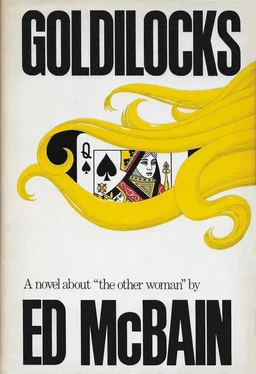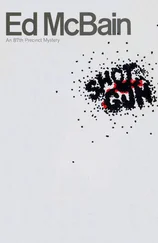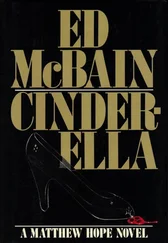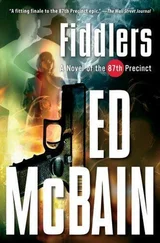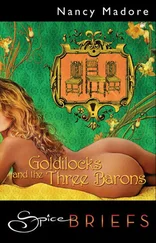“Rostropovich is the world’s greatest cello player,” I told Joanna.
“You took me to see the world’s greatest violin player, too,” Joanna said, “and he put me to sleep.”
I did not blame that on Isaac Stern. When a person is twelve years old, anything but reruns of I Love Lucy will put her to sleep. Besides, Mr. Stern was working against a rolling and continuous wave of coughs, sneezes and snorts that caused him first to change his program midconcert, and then to chide the audience gently for the epidemic of nasal catarrh. When we left the auditorium that night, I ventured the guess that we wouldn’t be seeing Mr. Stern in Calusa again. Susan said, “Why not?”
I said, “Because the codgers were rude.”
“It’s rude of you to call them codgers all the time,” Susan said. “They’re simply old people.”
“They’re rude old people,” I said. “I’d personally rather choke than cough in the middle of a violin passage.”
“I personally wish you would,” Susan said.
It was perhaps memory of the Isaac Stern argument that prompted the Virginia Slims argument. In recent months, I’d taken to cataloging our many and varied arguments, the better to recall them fondly. I did not know, of course, that the Virginia Slims argument would later become the Beefeater Martini argument and still later the Reginald Soames argument and eventually what I will always and forever remember as the Jamie Purchase argument, even though his phone call at one in the morning ended all argument at once. It was still not yet one in the afternoon when Susan said, “Would you mind not discussing this now?”
“Discussing what?” I said.
“Whether or not Joanna has to come with us tonight. We’re late as it is...”
“We’re not that late,” I said.
“Well, just keep your eyes on the road, okay?”
“There’s nothing I can do but stay in line, anyway,” I said. “This car may have cost seventeen thousand dollars but it doesn’t have wings.”
“ And some change,” Susan said. “You forgot to say ‘and some change.’”
“And some change,” I said.
“Just drive,” she said, “okay?”
“No, you just drive,” I said, and pulled up the hand brake at the stoplight on U.S. 41, and got out of the car and came around to the other side of it. I slammed the door when I got in again.
“I don’t know what you’re so angry about,” Susan said.
“I’m not angry,” I said. “If you don’t like the way I drive, you can drive yourself. It’s as simple as that.”
“I don’t like to drive when I have the curse,” Susan said.
She was thirty-two years old, and she still referred to her menstrual cycle as “the curse.” I think she felt the words implied intercourse denied, the curse being not the flow of blood itself, but rather the interruption it caused in an otherwise wild and passionate sex life. There was, in fact, a look of suppressed sensuality about Susan. Dark brooding eyes, an oval face framed by cascades of long brown hair that fell straight and loose to her shoulders, a full pouting mouth that gave an impression — not entirely inaccurate — of a sullen, spoiled defiant beauty.
We got home from the matches at about five-thirty. Susan had sulked for most of the afternoon, but she seemed to have got over her peeve by the time she’d showered and dressed for dinner. It was decided that if Joanna could not appreciate the better things in life, why then she could stay home.
She said, “Good, I can watch The Sound of Music on television.”
“If you came with us,” I said, “you could hear the sound of music in person.”
The Beefeater Martini argument started when I ordered my second drink before dinner.
“You’re not going to have two of those, are you?” Susan asked.
“Yes,” I said, “I’m going to have two of them.”
“You know how you get after two martinis.”
“How do I get?”
“Fuzzy.”
It was Susan’s contention that I never got drunk when I drank, for example, two Scotches with soda or two any things with soda, but I always got drunk or fuzzy or furry or slurry (these were all Susan’s words) when I had two martinis, especially two Beefeater martinis, the magic word Beefeater somehow adding more potency to the drink.
“Susan,” I said, “please let’s enjoy dinner without another argument.”
“We wouldn’t argue if you wouldn’t drink,” Susan said.
“We argued this afternoon,” I said, “and I wasn’t drinking.”
“You probably had one before we left the house.”
“Susan, you know I didn’t have one before we left the house. What are you trying to establish here? That I’m—”
“Then why’d you get all upset when all I did was tell you to watch the road instead of—”
“I got upset because Joanna had asked me a question, and I was trying—”
“That was no reason for you to snap at me.”
“I snapped at you because you were nagging. And you’re nagging now. If a man has a couple of martinis before dinner—”
“ Beefeater martinis,” she said.
“Yes, Beefeater martinis, right, that doesn’t make him an alcoholic.”
“You’re going to get fuzzy and spoil the evening,” Susan said.
“The evening is spoiled already,” I answered.
Susan fell asleep while Rostropovich was playing Schumann’s Fünf Stücke im Volkston , Opus 102, Mit Humor , no less. I said nothing about it. We had not exchanged a word since leaving the restaurant, and we said nothing on the way home, either. Joanna was still awake when we came in. It was already a half-hour past her normal bedtime. “It’s ten-thirty,” I said, tapping my watch.
“I know,” she said.
“Have you finished your homework?”
“Yeah,” she said, “but I was trying to figure out this record club thing.”
“What record club thing?”
“The record club, Dad. My record club.”
“Oh, yes,” I said, “your record club.”
“Will you help me fill out the dingus?”
“Tomorrow,” I said.
“Dad, it’s due back on the sixth.”
She went into her room and came back with a printed card. I studied it carefully and handed it back to her. “It only has to be postmarked the sixth,” I said.
“Where does it say that?”
“Right there.”
Joanna looked at the card. “Oh,” she said. “Yeah, that’s right.”
“Tomorrow’s only the first. We’ve got plenty of time.”
“Okay, Dad,” she said, and kissed me good night. “Mom?” she said.
“Yes?” Susan said.
“G’night, Mom.”
“Good night,” Susan said. She was already in bed. Joanna went to the bed, and bent over and kissed her on the cheek.
“G’night,” she said again, and then went to her own room.
I undressed silently, and turned out the light on my side of the bed. Susan lay stiffly beside me. I knew she was not asleep, her breathing was too erratic, interrupted by occasional long sighs. At last, she said, “What is it, Matthew?”
“What do you mean, what is it?”
“Why do we fight so much?”
“You invariably start them, Susan.”
“That isn’t true.”
“You started the fight on the way to the tennis—”
“No, you flew off the handle.”
“Because you were bugging me about the way I was driving.”
“You said you didn’t want to be late.”
“We were in no danger of being late.”
“There was a lot of traffic, and you weren’t watching the road, you were talking to Joanna.”
“Here we go again.”
Читать дальше
